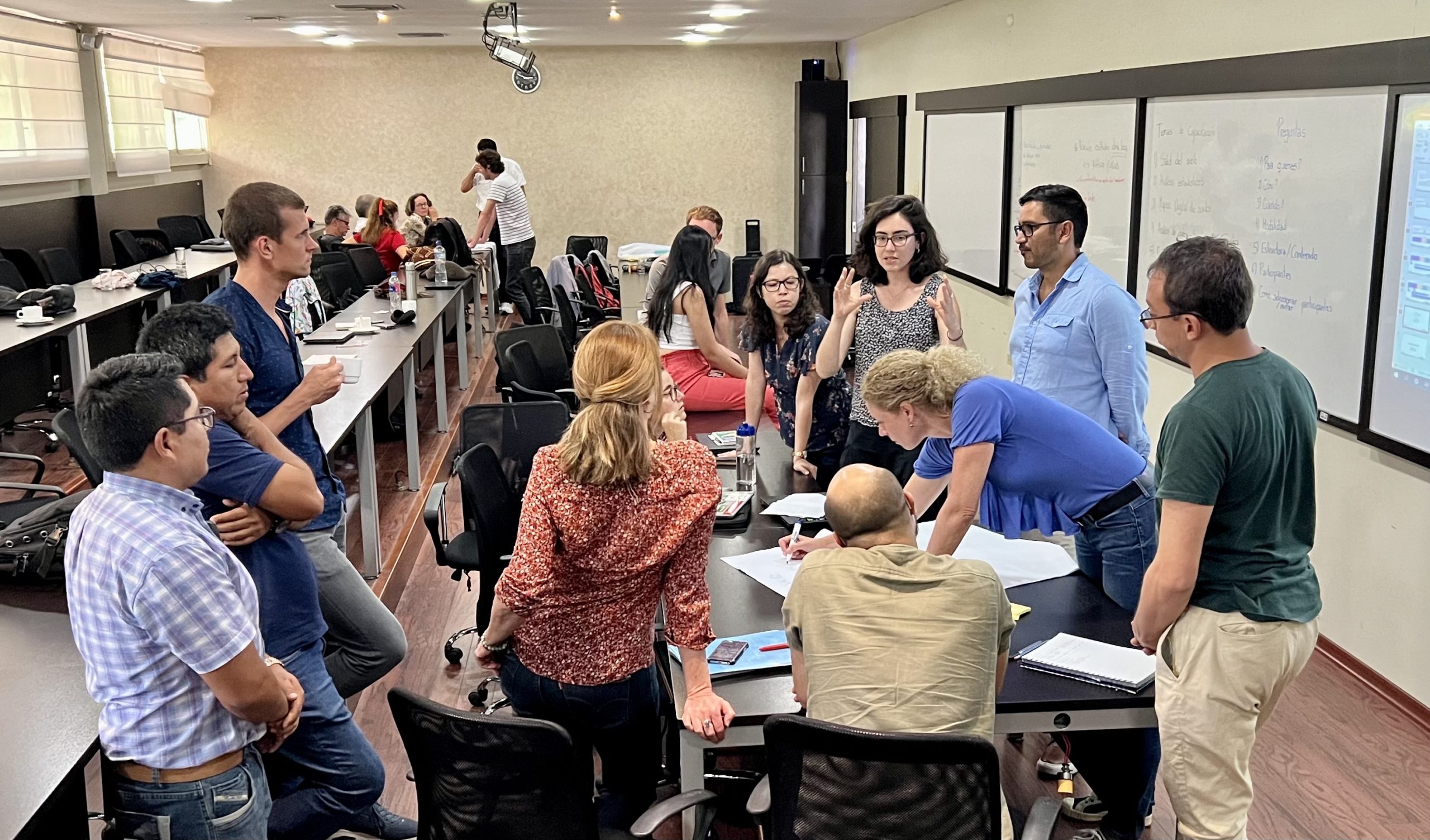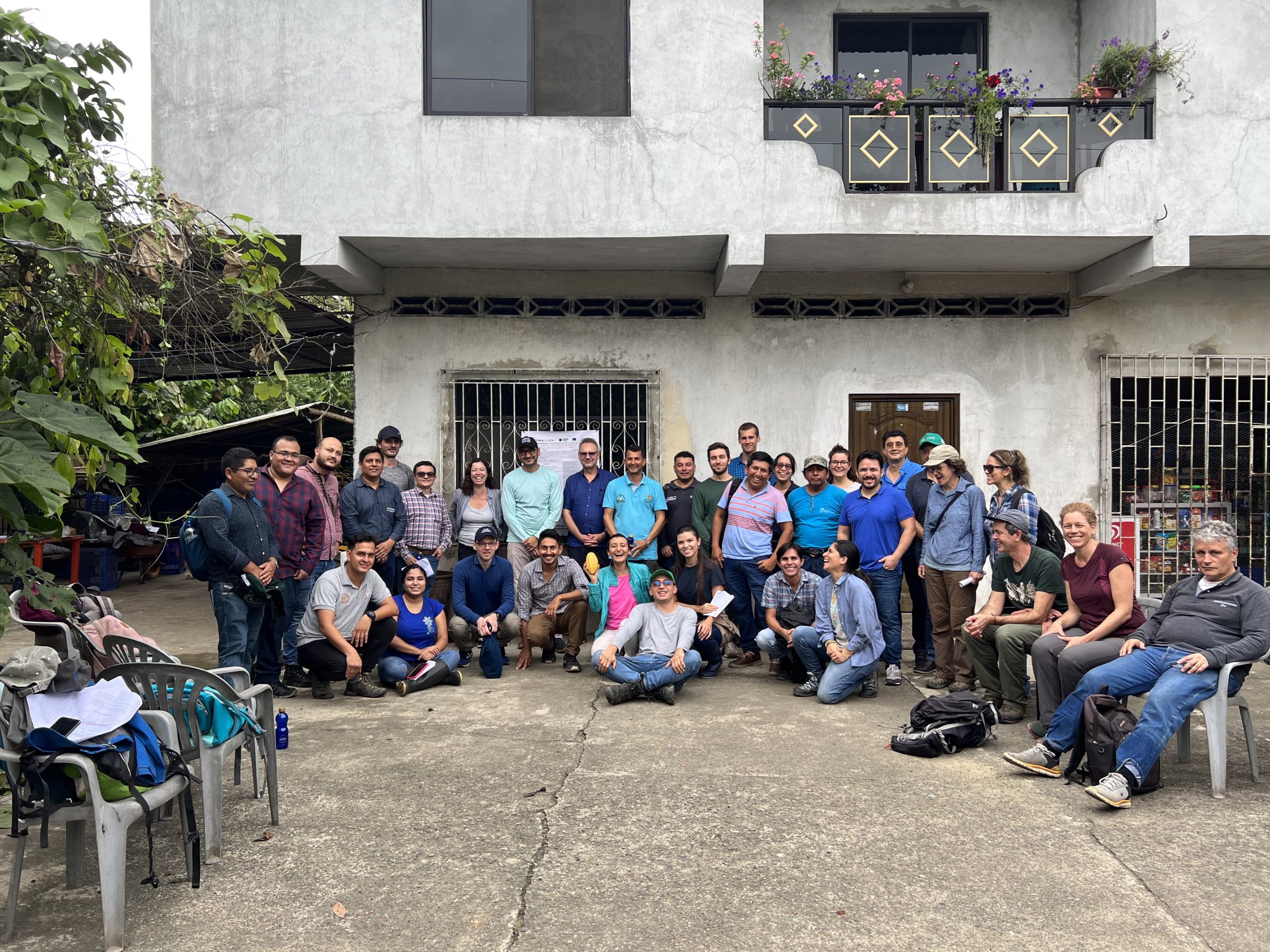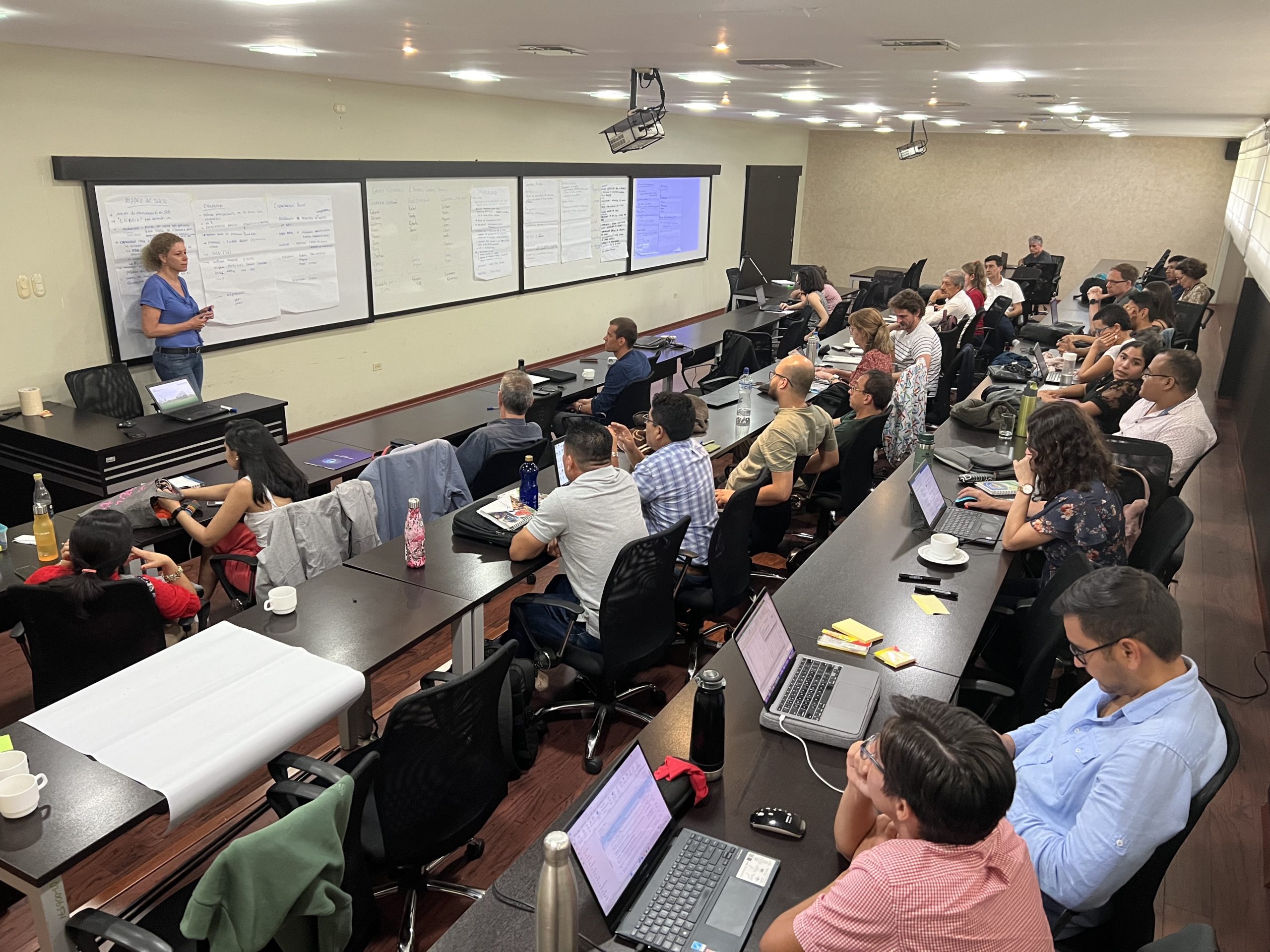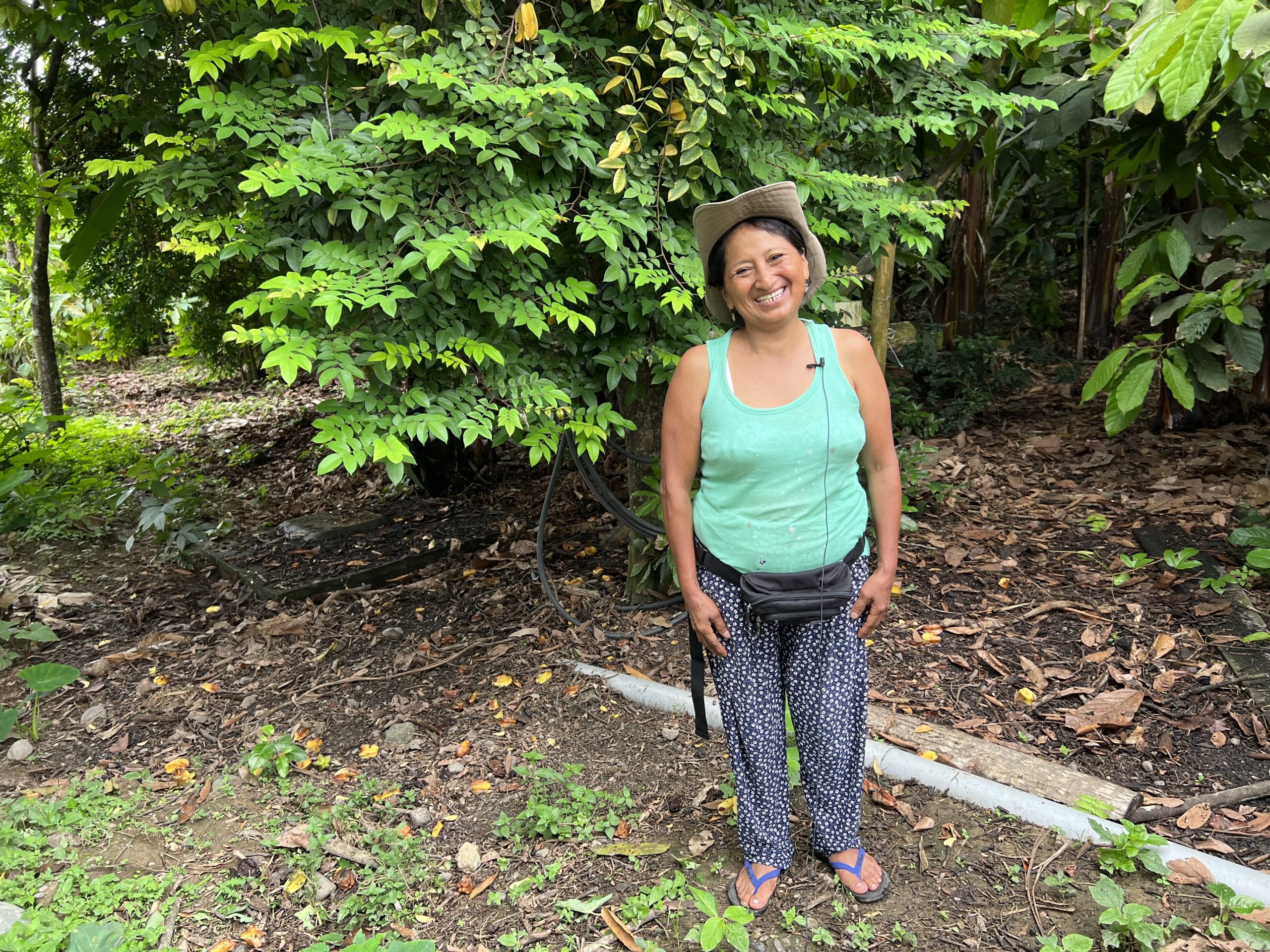
Researchers, technicians, partners from different organizations and external advisors of the Clima-LoCa project traveled from different destinations to meet in Guayaquil, Ecuador, for the same purpose: to analyze the progress and results obtained so far by this regional initiative. The annual project workshop also aimed to plan the next activities to promote climate-friendly, low-cadmium innovations suited to the different contexts of cocoa producers in Colombia, Ecuador and Peru.
At this meeting, researchers presented the progress of the Soil and Climate, Genetics and Socioeconomics components, including soil mapping, trials with amendments and PBS, identification of low accumulation genotypes and grafts, cost-benefit analysis, and much more. A topic that received much attention was the co-design of adaptation and scaling-up strategies with chain actors in the three countries.
“We have managed not only to get a great overview of the stakes, but also to realize how much information and data we have and that we must digest and implement for the benefit of small producers. The discussions were not only scientific and that adds enormous value”, said Erik Smolders, professor of environmental chemistry at KU Leuven (Belgium).
Manuel Carrillo, from the Department of Soil and Water Management of the National Institute of Agricultural Research, INIAP – Pichilingue (Ecuador), said that the face-to-face exchange allowed the knowledge shared to be nurtured and more forceful, “it is different when colleagues can experience firsthand what is experienced here”.

During the workshop, attendees had the opportunity to explore two palpable realities: that of Mr. Angel and Mrs. Monica, two small farmers from Puerto Inca, in the province of Guayas, owners of two of the 5 farms with which Clima-LoCa works and partner organizations such as Geosciences Environment of Toulouse (France); Enterprise, Cooperative, Citizen and Solidarity (France); Wageningen University (Netherlands); the Institute of Research for Development and the Escuela Superior Politécnica del Litoral (Ecuador).
Studies on the effects of organic amendments prepared on the farm on cadmium levels, soil health and organic cocoa production were carried out on the five farms mentioned above. In addition, a socioeconomic characterization of the organic cocoa production systems was made. It is a space created so that researchers can learn from the experiences of producers and learn first-hand about their realities and challenges.

The workshop also included a committee with external advisors such as Fedecacao, Anecacao and Rikolto, and the Latin American Association of Small Cocoa Producers’ Organizations (ALCACAO), where different key actors from the 3 countries and the EU met to provide feedback on the project. The advisors Freddy Kaiser López, representative of ALCACAO and Simón Padilla, from the STDF of the World Trade Organization, agreed on the importance of “continuing to strengthen ties and synergies between the different entities and organizations that are committed to the mitigation of cadmium in cocoa. In addition, to create strategies for the dissemination of information and results reach the hands of small producers and become a useful tool for their daily dynamics.
There are still two years ahead, so part of the Clima-LoCa team -for now- said goodbye to Guayaquil (Ecuador) and returned to their destinations to continue working for the cocoa sector in Ecuador, Colombia and Peru.

Learn more about the project here: ClimaLoCa | ClimaLoCa Project
Author
Camilo Beltrán Jacdedt, communications consultant for the Clima-LoCa project.
Clima-LoCa is a regional project led by the Bioversity Alliance and CIAT, implemented with research partners from Latin America and Europe, and funded by the European Union. The project contributes to the objectives of the 2018 call “Climate Relevant Innovation through Research in Agriculture” of the DeSIRA (Development Smart Innovation through Research in Agriculture) platform.
Disclaimer
Its contents are the sole responsibility of the author and do not necessarily reflect the views of the European Union.
Copyright © 2023 Alliance of Bioversity International and International Center for Tropical Agriculture (CIAT)
